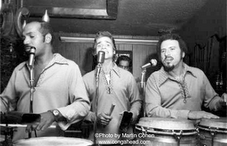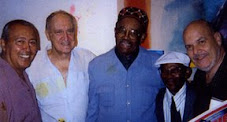Music is poetry in the air…. J. P. Richter
Nowhere is music more in the air than in Cuba, where the lowliest solo musician is a poet. When combined, these poets produce a weltweisheit…a philosophy of contentment that gives music a high priority in every Cuban’s everyday life. The “Blue Danube,” the waltz that swept Europe, made Vienna that gayest capital of its time. Havana may not be the gayest capital, but its music has no borders. They use their music as medicine to handle their misfortunes the way Neopolitans do…“O Sole Mio” traveled around the world but is mostly forgotten, like Argentina’s tango, “Comparsita.” Parma, the birthplace of Verdi’s twenty-four operas, is called the City of Music, like Strauss’s Salzburg, but one simple melody, “The Peanut Vendor,” put Havana on the map. Paris, famous for la Gaiete Parisienne, produced the cancan, and rests on its laurels like New Orleans after Mardi Gras. The Rio Carnival is incomparable but, seemingly exhausted, retires to prepare for next year. Spanish gypsies provide excitement and merriment like the Russians and Hungarians but are basically tragically oriented with their musical bipolarity. Germany’s music may start you marching but salsa stirs your toes. The Irish, like the Greeks who dance in circles, need a pint to get on the dance floor. Japan’s rock and roll is imitative and in Hong Kong the sound of the cash register is music. When Um Kulsum sang in Cairo, the Muslim world came to a halt, but she is gone. Truly irresistible music is rare and most music is not. In Brazil, samba does not serve to bring sufficient joy into the life of the average Carioca the way salsa has in Cuba and Puerto Rico, where its mystique is well understood.
* * * *
Many cities claim the title of “Paris of the…whatever.” Buenos Aires is called “the Paris of the Latin America,” Beirut was called “Paris of the Middle East,” Saigon was “Paris of Southeast Asia.” This terminology could refer to the architecture as well as to the spirit one found in these cities, but when one called Havana “el Paris del Nuevo Mundo,” they meant the joie de vivre principally…the excellent rum, fine tobacco, the Habaneras or the cool spray along the Malecon that makes you love the place. Is it the constant hum of a silent rhythmic generator, the spicy lyrics or sexy citizens? When these lyrics contain ironic humor, it becomes a Laurel and Hardy world…more bearable and more true to life, unlike the message found in the malingering sophistry of Country or Western music.
At one time, you could sail or fly to Havana for very little. A weekend was sufficient to enroll you as a lifetime supporter of the phenomenon you discovered there. You had tasted the brand of universal happiness that, as an elderly black lady once told me at the end of her cruise to Nassau, “I never knew life could be so sweet.” Had she gone to Havana, she would have known what made it so. She was referring basically to her experience aboard the ship. The truly sweetened life is the one in which dark thoughts are drowned out by a musical antidote…one that can be shared like a bottle of wine with your supportive neighbors. Your woes are spread across a spectrum of understanding sympathizers. Music, they say, is medicine. What is it that makes Cuba rock, swing, jump…that puts poetry in the air? It is called tumbao, the cohesive poetry in the African drum.


No comments:
Post a Comment